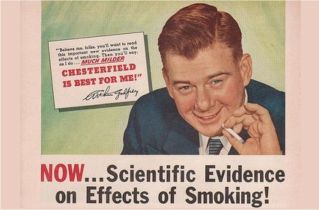
Husband Bill was chuckling as he highlighted a phrase in the cautions paragraph of a medication instruction sheet. The phrase “Talk to your doctor” was repeated 9 times! Understandably, Walmart wants to make sure the customer knows all the dangers. What amused Bill is that we probably assume that doctors already know all those risks when they prescribed adrug…or do they? What if “Doctor’s Orders” are wrong?
Medicine has become so technical, complex, fractured and hurried that we really should take very little for granted. Here are three examples I recently stumbled across where the “experts” were off base. The situations can seem funny except that they can cause people to avoid treatments that would be helpful and that are often safer than more conventional choices.
- Geniuses at an agency (European Food Standards Authority) of the European Union declared that producers of bottled water could not legally claim that water reduces dehydration. Article. Do you suppose this kind of nonsense is one reason that Brits recently voted to withdraw from the EU? (Even our often misguided FDA is not that bad.)
- A recent review of studies is just the latest showing benefits of a gentle massage technique, “therapeutic touch”. In this case the benefit was for pain, nausea, anxiety, fatigue, quality of life and even biochemical measures—especially in cancer patients. I found that review while looking for an update to a Time magazine article from 1994 which quoted experts mocking the method as “New Age mumbo-jumbo”.
- A newspaper headline from last fall says “Vitamins don’t stop polyps.” Researchers had looked at supplemental calcium and vitamin D. The calcium (a mineral not a vitamin) was given at 1,200 mg a day. If you read Death by Calcium: Proof of the toxic effects of dairy and calcium supplements or listened to my interview with the author, you will understand why calcium might be expected to actually increase the risk of precancerous polyps. (The scientists might have had better results giving magnesium, zinc or selenium.) As for the vitamin D, the dose was a mere 1,000 IU. That is probably not enough to get most participants into even the safe range, let alone to a therapeutic level.
- In the late 1940’s magazine ads claimed that more doctors smoked Camels than other brands and claimed that 20,679 doctors thought Luckies brand were less irritating. The ad shown above features entertainer Arthur Godfrey and a positive spin on the health evidence. The ad copy noted that scientists had checked folks who had smoked Chesterfields for an average of 10 years. They reported no damage to nose, throat or sinuses. Hmm…they didn’t mention looking lungs for cancer or emphysema which ironically is what killed poster boy, Mr. Godfrey.
We can’t believe all experts or discount them all. It does pay to remain a little skeptical and educate ourselves. Applying a little common sense helps as does educating ourselves. Getting a second opinion is also recommended. However, it is a good idea to get that opinion from a professional with a different type of training. Otherwise we are basically getting the same advice two different times. (I’m pretty sure that Dr. Google isn’t always right.) My guide to identifying a quack might be useful.










 July 14, 2016
July 14, 2016 